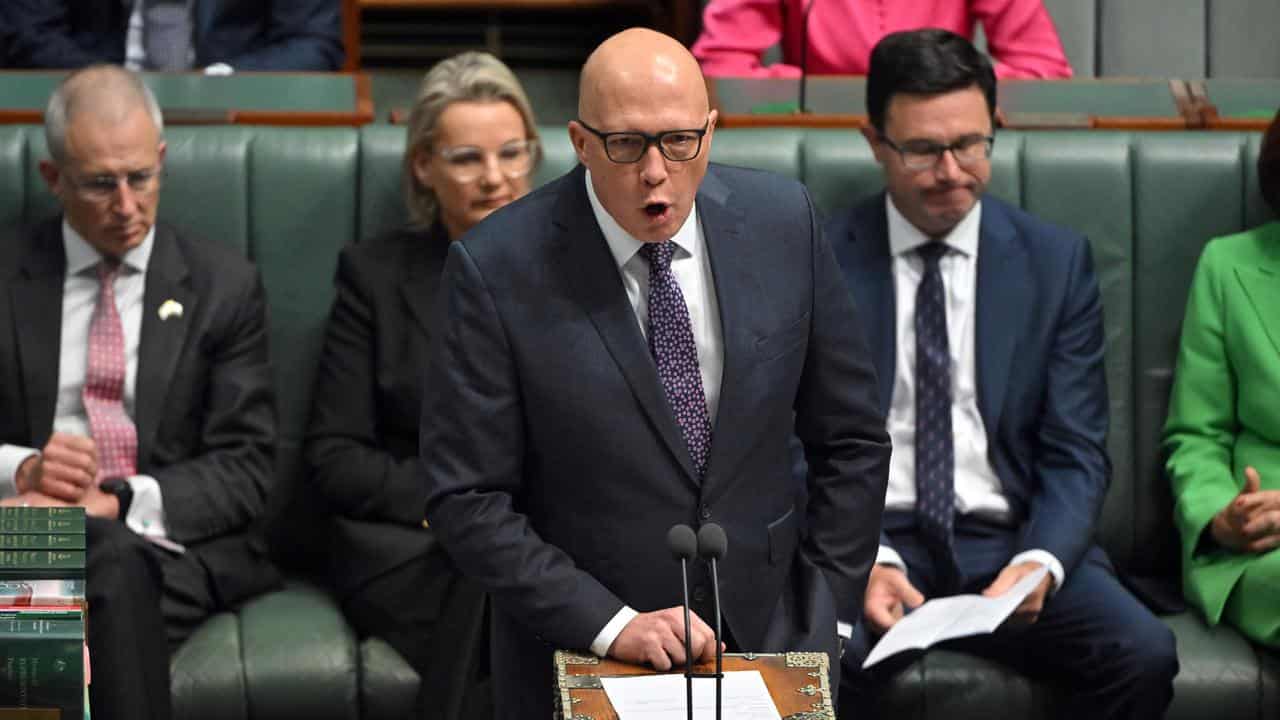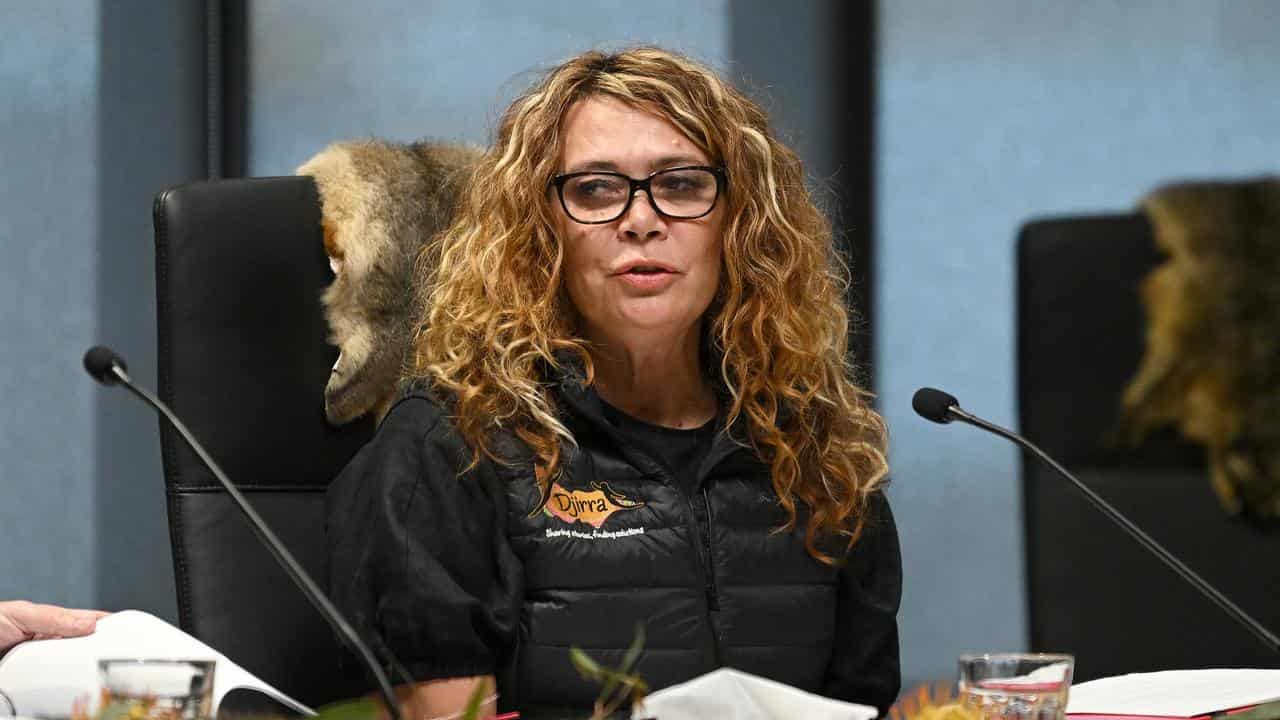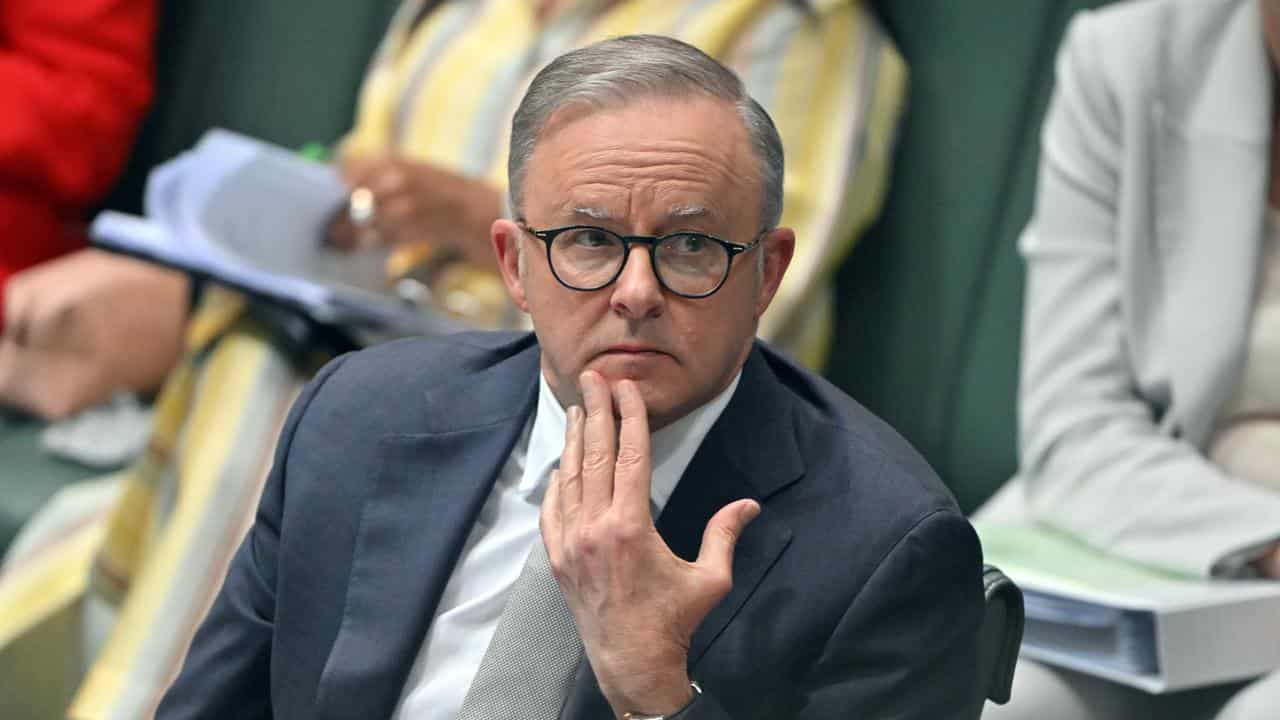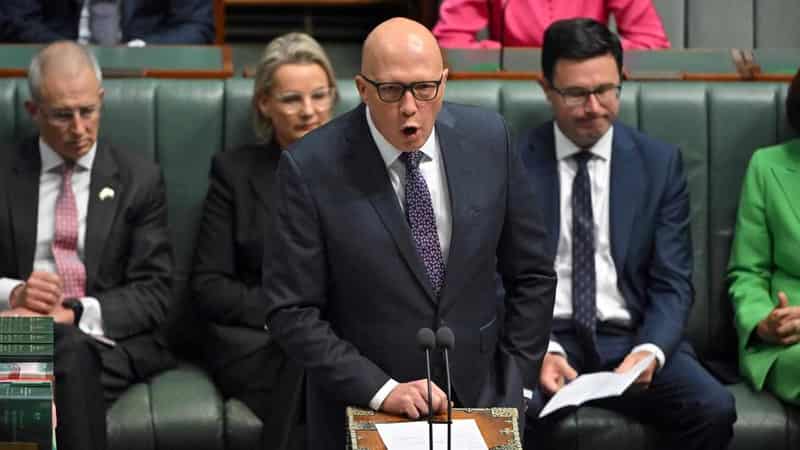
Peter Dutton has been accused of politicising the safety of women and children in Indigenous communities by calling for a royal commission into sexual abuse.
The opposition leader used a motion - defeated in the House of Representatives on Thursday - to urge the government to back the commission which was suggested by the coalition following the defeat of the Indigenous voice referendum on Saturday.
The coalition had also called for an audit on Indigenous spending.
Mr Dutton said a royal commission would be able to address long-running community issues.
"The Australian people didn't want a continuation of the window dressing, they didn't want another committee, they didn't want another ATSIC, they want practical action," Mr Dutton told parliament.
"The power imbalance that exists in some of the communities is something that needs to be delved into and a royal commission has the ability to pull people in to provide evidence to look at the situation as it exists."
But in a joint statement, multiple Indigenous organisations said children should not be used as a platform to advance political causes.
The statement, signed by 36 Indigenous and child safety groups, said a national Aboriginal and Torres Strait Islander children’s commissioner, with powers to investigate, would be more effective.
"These calls for a royal commission into the sexual abuse of Aboriginal children have been made without one shred of real evidence being presented," the statement said.
"They play into the basest negative perceptions of some people about Aboriginal people and communities.
"Singling out Aboriginal families and communities is harmful and puts ideology before evidence."

Chief executive of Indigenous legal support group Djirra, Antoinette Braybrook, said a royal commission was not asked for by Indigenous communities.
Ms Braybrook said the opposition leader shouldn't use Indigenous people as political footballs.
"The opposition leader must stop politicising Aboriginal women and children's safety and listen to Djirra and the many other organisations working at the frontline for more than 20 years," she said.
"We don't want government bureaucracies, opportunistic politicians or wasted taxpayer money on more royal commissions to tell us what they believe solutions are, this approach is a proven failure."
Prime Minister Anthony Albanese said while addressing abuse was important, it would not initiate a royal commission.
"No-one in this place is disputing the seriousness of this issue but what we won't be doing is agreeing to stunts which are designed to whip up outrage somehow, as if this a partisan issue," he told parliament.

Meanwhile, a new poll showed a majority of Australians who voted down the Indigenous voice support the introduction of truth in political advertising laws in time for the next federal election.
The Australia Institute surveyed voters about the voice referendum and misinformation after the polls closed last Saturday.
It found both those who voted 'yes' (92 per cent) and 'no' (83 per cent) agreed that truth in political advertising should be legislated before the next election campaign.
Seven in 10 respondents said they were concerned about misinformation on social media in the lead up to the voice referendum.
Australia Institute executive director Richard Denniss said it shouldn't be legal to lie in a political ad.
"Misinformation and disinformation swamped the referendum campaign with arguments that often had little to do with what Australians were being asked to vote on," Dr Denniss said.
“Whether it is an election or a referendum, voters should go to the polls armed with the facts."









